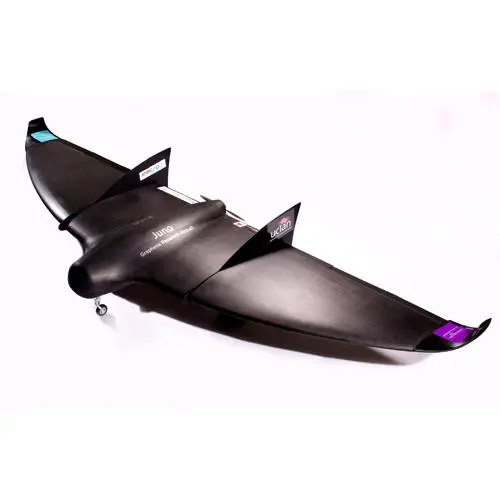UCLan named as a foundation partner of Manchester’s Graphene Engineering Innovation Centre
The University of Manchester’s soon-to-open £60m Graphene Engineering Innovation Centre (GEIC) has agreed further partnerships as part of the far-reaching agenda to accelerate graphene and 2-dimensional materials commercial prospects.
The GEIC is the University’s second state-of-the-art graphene facility complementing the activity of the National Graphene Institute (NGI). Together the two centres cement Manchester’s position as the home of graphene 15 years after the material was first isolated at the University.
The GEIC has already registered three Tier One members and several Affiliate partners. Today, two Foundation partners are announced – the National Physical Laboratory (NPL) and the University of Central Lancashire (UCLan) Engineering Innovation Centre (EIC).
Through the GEIC, Foundation partners will be a key university partner supporting the creation of a graphene community and ecosystem within the GEIC to encourage early stage development and collaborations.
The GEIC will focus on industry-led application development in partnership with academics. It will fill a critical gap in the graphene and 2D materials ecosystem by providing facilities which focus on pilot production and characterisation; together with application development in composites, energy, solution formulations and coatings, electronics and membranes.
"At UCLan we are concentrating our efforts on the use of graphene in the aerospace industry and Juno, the world’s first graphene skinned plane, is our latest development."
James Baker, CEO at Graphene@Manchester, said: “For the GEIC and graphene to be successful we need to ensure a wider holistic approach than the manufacturing ecosystem as a whole, as well as doing the work in the lab and around scale-up and prototyping we also need to generate confidence in new materials which has historically taken a long time.
“What we have seen with graphene has been very quick with applications already in the market and we are at a tipping point where this will increase. We also need to ensure that false promises aren’t being made and that comes with the implementation of standards and demonstrating real-world value through prototypes.”
One of the barriers to market for any new material is standardisation, to enable end-users to be confident of quality, cost and repeatability when developing new applications and processes.
UCLan’s EIC is also developing a previous relationship with the NGI through to a more direct commercial approach alongside the GEIC. The partnership has, so far, seen the development of three generations of unmanned aerial vehicles (UAV) incorporating graphene into the build structure to reduce weight and increase impact strength.
The GEIC Foundation partnership will demonstrate graphene’s benefits to the aerospace industry through the creation of real-world prototypes. The newest UAV will showcase the effects of graphene in drag reduction, thermal management and ultimately the ability to achieve lightning strike protection for aerospace and other related opportunities.
Billy Beggs, UCLan’s Engineering Innovation Manager, said: “Our successful relationship with the Graphene Engineering Innovation Centre continues to go from strength-to-strength and we are delighted to be one of the first Foundation partners.
“At UCLan we are concentrating our efforts on the use of graphene in the aerospace industry and Juno, the world’s first graphene skinned plane, is our latest development. By working collaboratively with our partners and industry leaders, we are leading the way in aerospace developments and look forward to discovering more in the future.”
NPL’s expertise in test and verification of materials has already been combined with the NGI’s research and development excellence to develop a good practice guide and definitive terminology for graphene. Now as a Foundation partner NPL can provide national expertise for measurements for the properties of commercially supplied graphene.

"We are delighted to become a Foundation partner for The University of Manchester’s Graphene Engineering Innovation Centre (GEIC)."
JT Janssen, Research Director at the National Physical Laboratory (NPL), said: “We are delighted to become a Foundation partner for The University of Manchester’s Graphene Engineering Innovation Centre (GEIC). The Centre is a fantastic step forward, putting the UK’s emerging graphene economy at the forefront, accelerating commercialisation of next generation technologies in the same country the material was first isolated.
“As the National Measurement Institute for the UK, NPL is in a prime position to provide the materials verification and standardisation expertise as part of the GEIC’s remit. Our experts will be on-site in Manchester, working collaboratively alongside other industry experts to provide these services.
“Through this partnership we hope to continue the great work already underway in this area, such as the NPL-led graphene ISO standard, a world-first on graphene terminology. In collaboration with the University’s National Graphene Institute, we also produced the NPL Good Practice Guide on the Characterisation of the Structure of Graphene, as well as the Graphene Characterisation Service, launched earlier this year.”

